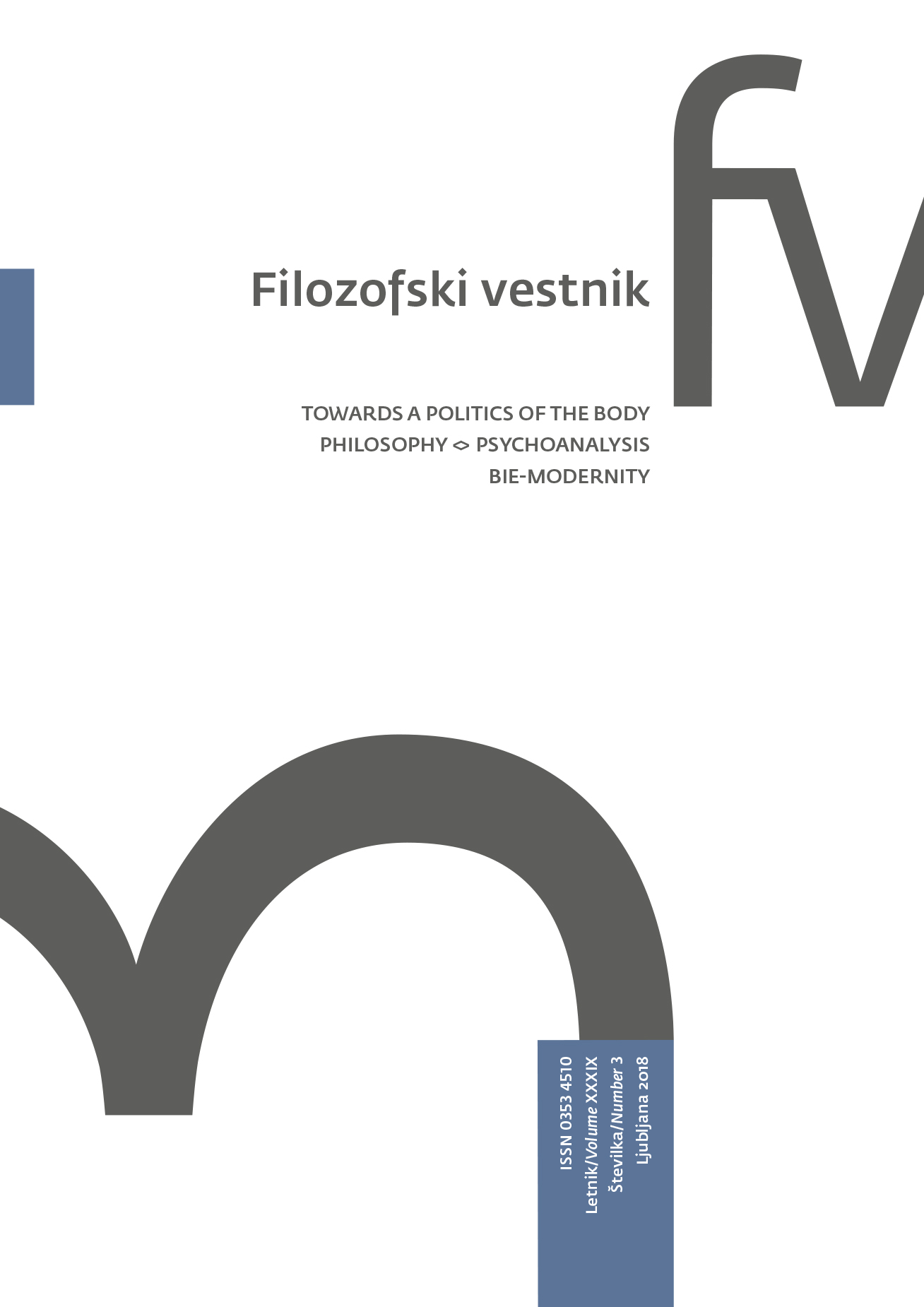Sadovska politika ali tiranija užitka
Ključne besede:
Sade, politika, narava, užitek, zakon, družbena vez, svobodaPovzetek
Eden od naukov Freudovega Nelagodja v kulturi je, da je užitek, ker prinaša bolečino in trpljenje, nekaj škodljivega za subjekta. Toda ta inherentna krutost užitka postane problem za moderno moralno in politično filozofijo s Sadom, za katerega je pravica do užitka ena temeljnih človekovih pravic in kot taka univerzalna. Če je Sadova univerzalna pravica do užitka nepojmljiva zunaj okvira diskurza o človekovih pravicah, znotraj katerega je univerzalna pravica sploh mogoča, pa sadovska pravica do užitka pomeni mejo tega diskurza v tisti meri, v kateri Sadov despotizem strasti ne zagovarja pravic človeka, marveč pravice užitka. Toda ali sploh lahko obstaja nekaj takega kot etika in, posledično, politika užitka, če sta etika in politika utemeljeni na razmerju do Drugega, užitek, ki je po definiciji solipsističen, avtističen, pa status Drugega ravno problematizira? In narobe, če Sadov emancipatorni projekt meri na uresničenje tiranije užitka prav na ravni družbe, potem bi se lahko vprašali, kakšna je družbena vez, ki je utemeljena na užitku, ki se zdi nezdružljiv z njo? Zato da bi odgovoril na ti vprašanji, pričujoči članek analizira radikalno naravo Sadovega despotizma strasti kot reinvencijo družbene vezi, ki med seboj poveže dve nekompatibilni instanci: svobodo in užitek.
Prenosi
Prenosi
Objavljeno
Kako citirati
Številka
Rubrike
Licenca
Avtorji jamčijo, da je delo njihova avtorska stvaritev, da v njem niso kršene avtorske pravice tretjih oseb ali kake druge pravice. V primeru zahtevkov tretjih oseb se avtorji zavezujejo, da bodo varovali interese založnika ter da bodo povrnili morebitno škodo.
Podrobneje v rubriki: Prispevki





